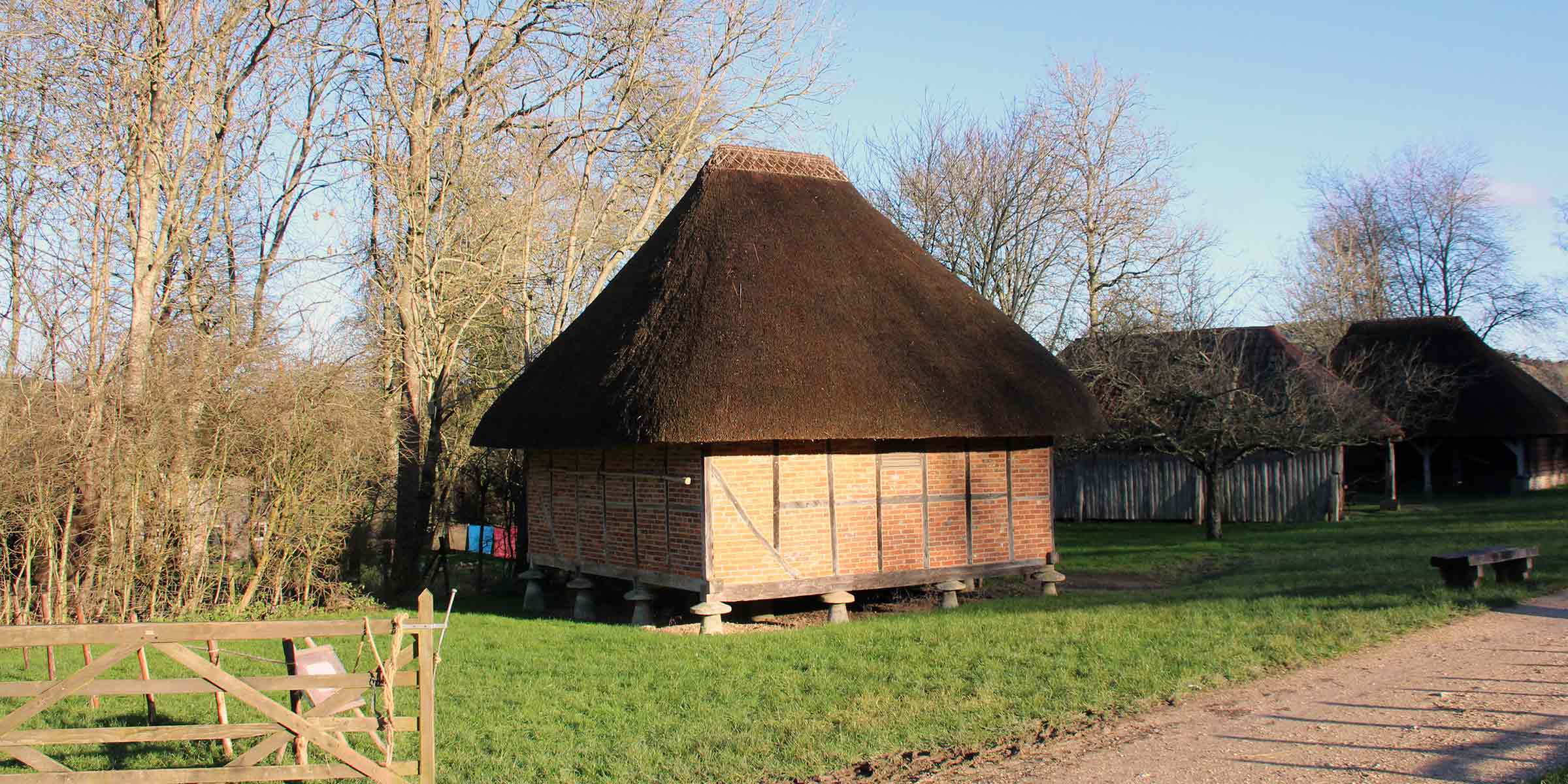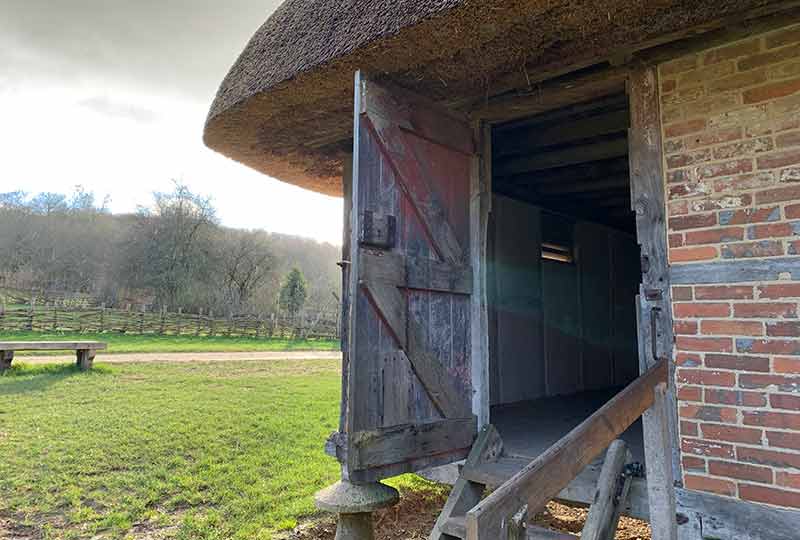
This granary was probably built in 1731. The timber frame is mainly of elm infilled with brick, and the building is raised on sixteen stone staddles to protect the grain from damp and vermin. It is an unusually large example, with a usable loft.
If we can rely on an incised brick by the door, the granary from Littlehampton was built in 1731. This corresponds well with the structural evidence, the type of brick used in the infill, and other details. It also corresponds with the rebuilding of the farm to which it was attached, which has a date stone, 1732, over the door.
Share
Overview
Dates From
c.1731
Dismantled
1969
Reconstructed
1970
Original Location
Littlehampton, Sussex
Building History
Background Information
Most of the structural timber was elm, the remainder being oak. Elm seems to have been widely used in farm buildings in the coastal plain, where it was the dominant hardwood tree from at least the beginning of the 17th century.
Apart from a few minor alterations the granary remains substantially as originally built. Two of the grain bins were still in good condition, and these have been put back in the reconstructed building.

Littlehampton granary on its original site being dismantled in 1969.
Access to the loft was by a ladder stair near the door. The original ventilator louvres had been changed to glazed windows, as is the case in most granaries converted to other uses, but they have been restored to their original form in the reconstruction.
The sixteen staddle stones on which the granary is built are probably of Portland stone, and are identical to those under the granary from Goodwood which stands in the Museum’s car park area. These staddles must have been mass-produced and sold over a wide area.
The doorway had been widened at some time, but it has been reconstructed at its original width. The present door is not the original one but the door for the wider doorway reduced. Some of the brick infill of the framed walls had been patched and replaced with later brick.

Brick and elm beam detail from the granary.
It has been possible to clean and re-use about half of the original bricks, and the whole building has been restored to its original character.
Top 3 Interesting Facts

A Large Granary
The granary probably dates to 1731 and is unusually large, measuring 20 feet square, with a usable loft.

Road Widening Scheme
The building had to move to the Museum as it was threatened with destruction due to a road widening scheme.

16 Stone Staddles
The building sits on sixteen stone staddles, which protect the grain from damp or vermin.







